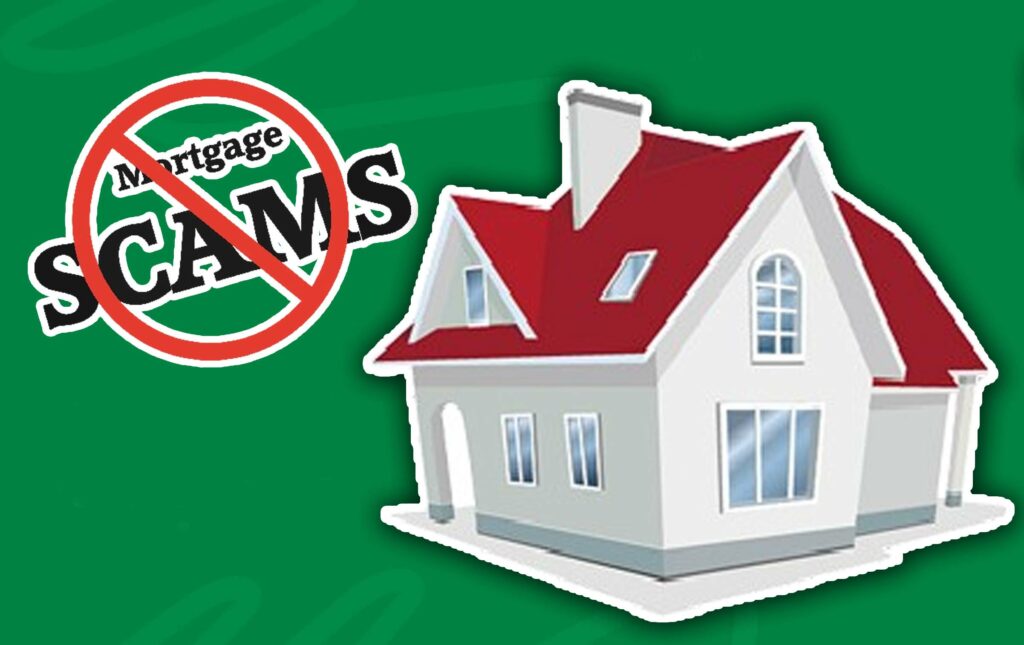While getting a mortgage loan is tough enough, most scammers take advantage of home buyers looking into taking a mortgage loan. When renting, buying, or refinancing your mortgage loans, you need to be aware of the common mortgage scams to avoid. Most home buyers as well as homeowners fall victim to mortgage scams, causing them to lose money and other valuables.

Generally, lenders are often tricky to understand, especially with the hidden fees assigned to every loan. Scammers take advantage of these processes, causing many people to lose their valuables. These scammers often apply pressure when offering mortgage loans and promise unrealistic offers. After carrying out all their schemes, they ruin the finances of home buyers and destroy their hopes of purchasing a home. This write-up indicates some common mortgage scams to keep you aware of them.
5 Common Mortgage Scams to Avoid
Mortgage scammers make use of different processes to steal from unconscious borrowers. Here are 5 of some of the most common mortgage scams to avoid:
Guaranteed Wire Fraud
Scammers often make use of this method to get home buyers to fall victim. An email, text, or phone call is sent from a person claiming to be a mortgage-guaranteed company with guidance on how and where you should wire your mortgage funds. These scammers then create a fake website that displays similarities to the mortgage lender you are working with, making it seem real. Fraudsters make use of parody techniques to make websites, phone numbers, and email the same.
However, to avoid them, you need to review the original loan documents from your lender before sending money to a third-party account. Ensure you call the phone number on the original document to verify whether the information you received is true or not. Make sure you do not click any emails. Or links you receive before confirming if the information is valid or not.
Mortgage Upturn and Exploitative Lenders
Mortgage upturning is when an exploitative lender pressures a homeowner to refinance their mortgage continuously. These scammers charge more fees and points for each transaction and get the homeowner burdened with higher loan payments they cannot pay after they have been made to borrow more than their home’s value. Senior homeowners are recorded to more easily fall victim to these scams than younger homeowners.
Senior homeowners with intellectual issues should entrust their financial discussions, especially their mortgage, to a trusted friend or relative. This way they can easily avoid this scam. Also, if you’ve just recently finalized your mortgage refinancing, it is not advisable to refinance immediately. If you are being pressured by the lender to refinance again even when you don’t request help, then it’s a scam.
Repossession Relief
Most homeowners who fall behind on their mortgage repayment most times get desperate to keep their home. Scammers take advantage of this situation by promising repossession relief to desperate homeowners. These scammers make use of public records of homes in preforeclosure to get this information. And offer these homeowners repossession relief to scam them. They will claim they can help these homeowners keep their homes and lessen their mortgage payments but for a higher upfront fee. While they do these, most victimized homeowners are left in a worse financial state than they were.
To protect yourself, it is important to work with your loan servicer directly to solve the problems on your existing loan. Here you can request forbearance or any other repayment option to make the loan repayment easier. Another way to avoid this scam is by seeking help from a HUD-accredited housing counselor to confirm their options concerning your situation.
Rental Scams and Unreal Listings
Fraudsters consistently post loan ads on social media or Craigslist to attract unconscious renters. They use fake photos from other listings to create theirs, making them look real and legit. These scammers who have no relation to the property or the homeowner will request a down payment to allow you to see the property or as a deposit. However, in reality, they do not have anything to offer in return.
Renters should educate themselves about different rental scams when searching for a new home to rent. It is also advisable that renters do proper research and get the right details and terms about the loan in the documentation. This way you can easily avoid scams when searching for a home.
Bait-and-Switch Movers
After finding a new place, your next move is to get all your properties in. During these times, scammers appear to mislead you. For instance, you have filled out a form indicating your properties for a moving company estimate, and you are given an estimate for $4,000. When the company arrives, they inform you it is $10,000 instead; in cases like this, you have fallen victim to scammers.
While moving is quite expensive, going for a cheaper estimate may be tempting, but it is important to not just shop for the price but also the legitimacy. Request the license number of the moving company and confirm if they have had any complaints from the Federal Motor Carrier Safety Administration. Through this process, you can easily identify scammers.
How to Report Mortgage Scams
When you fall victim to these scams, it is important to file complaints concerning what happened. By doing this, the authorities can take the extra step to catch the culprit. However, to report mortgage scams, you need to:
- File a complaint with the FTC agency online.
- Complaints can also be filed with the BBB’s Scam Tracker, which informs others concerning that fraudulent activity.
- Another way is by connecting with an individual or contacting our state’s consumer protection agency to listen to your story.
In cases where you have fallen victim to a scam, especially if you have given them any private information, you may be required to do more than file a complaint. Through any of these processes, you can easily report scams directly from your home or in person.



